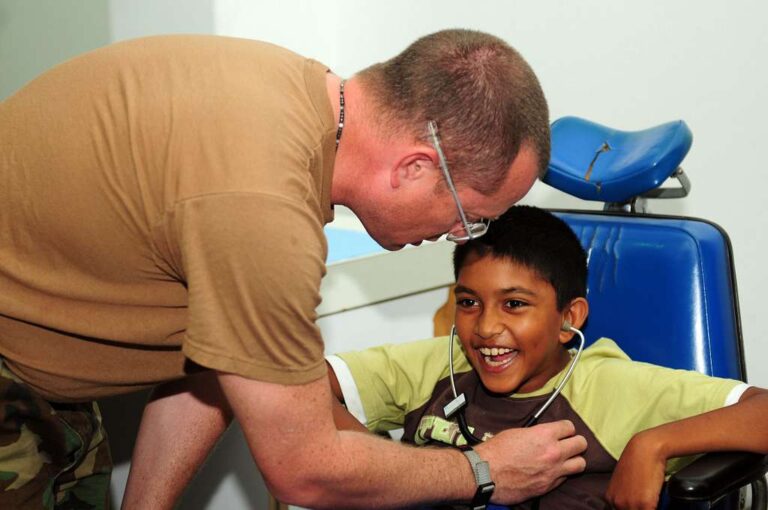What to Expect During Your Child’s First Pediatrician Appointment

The first pediatrician visit is a key milestone in your child’s health care. Typically scheduled between 3 to 5 days after birth, this initial pediatrics appointment provides an opportunity to assess your baby’s well-being and discuss any early concerns. Let’s explore the key elements of this visit to help you understand what to expect and how to prepare:
Physical Examination
A thorough physical examination is often a part of your child’s first appointment at the pediatrics practice. The pediatrician will assess your baby’s overall health by checking their vital signs, including heart rate, respiration, and body temperature. They will examine your baby’s skin, eyes, ears, and mouth to identify immediate health concerns. The abdominal area will be palpated to check for abnormalities, and their limbs and joints will be evaluated for proper movement and alignment.
The examination also includes observing reflexes, which indicate normal neurological development. These observations are fundamental for identifying any early developmental issues. Parents should be ready to share any noticeable concerns, such as unusual behaviors or physical characteristics, to assist the pediatrician in their evaluation.
Growth and Development
The pediatric care provider will measure your baby’s weight, length, and head circumference. These measurements are charted to establish growth trends relative to standardized growth charts in pediatrics. Growth assessments are helpful in determining if your baby is thriving. For instance, sudden deviations in these trends may signal potential health concerns.
Developmental benchmarks are another focal point during the visit. The pediatrician may discuss early indications of your baby’s responsiveness, motor skills, and other reflexive behaviors. Documenting these early milestones will guide future developmental discussions and aid in timely intervention if needed.
Feeding and Safety
Feeding is a key topic during the first visit. Whether breastfeeding, bottle-feeding, or using formula, your pediatrician will address your baby’s feeding patterns, frequency, and overall intake. For instance, they might inquire about your baby’s diaper output, which provides insight into hydration and digestion. Your doctor will also provide tailored advice to help maintain your baby’s nutrition and growth.
Safety is another integral topic during this visit. Your pediatric care provider will discuss safe sleep practices, car seat usage, and general home safety precautions. Such discussions aim to equip you with actionable guidance to reduce risks in your baby’s environment and support their overall health.
Vaccinations
Vaccinations play a pivotal role in long-term pediatric care. Although no vaccinations are typically administered during this visit, the pediatrician will outline the recommended vaccination schedule. They will also address any concerns or questions you may have regarding immunizations. Building a clear understanding of your baby’s vaccination plan is helpful for staying on track with key immunizations. The discussion might also include tips for tracking your baby’s vaccinations and preparation steps for future appointments. Clear and transparent communication during this stage makes sure that you are informed about your child’s preventive healthcare needs.
Schedule Your First Visit With Our Pediatrics Experts
From reviewing your baby’s medical history to discussing vaccination schedules, this initial visit establishes a foundation for your child’s long-term health and well-being. By fostering open communication with your pediatrician and staying informed about the preventive care process, you are taking a pivotal step in supporting your baby’s health. Schedule your first visit with an expert pediatric team today to provide your child with expert care from the very beginning.
- What to Expect When Visiting a Foot and Ankle Specialist
- Causes of PTSD
- The Link Between Plantar Fasciitis and Weight Gain: What You Need to Know
- How Pet Ownership Can Positively Impact Life with Fibromyalgia
- The Importance of Stretching and Flexibility in Sports Medicine
Dr. Emma Green is a health and wellness expert with over 10 years of experience in nutrition and fitness. Passionate about helping others live their healthiest lives, Dr. Green shares practical advice on wellness, nutrition, and sustainable living through LivingSpristine.






